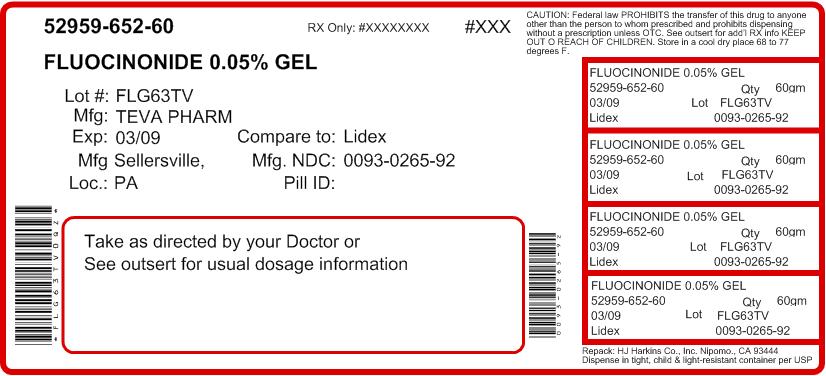
Fluocinonide Gel while Breastfeeding
What is Fluocinonide Gel used for?
Is Fluocinonide Gel usage safe while breastfeeding? If a lactating mother is using it can there be any effect on growth or development of infant?

Nursing Mothers It is not known whether topical administration of corticosteroids could result in sufficient systemic absorption to produce detectable quantities in breast milk. Systemically administered corticosteroids are secreted into breast milk in quantities not likely to have a deleterious effect on the infant. Nevertheless, caution should be exercised when topical corticosteroids are administered to a nursing woman.
Fluocinonide Gel Breastfeeding Analsys
Fluocinonide while Breastfeeding
CAS Number: 356-12-7
Fluocinonide has not been studied during breastfeeding. Since only extensive application of the most potent corticosteroids may cause systemic effects in the mother, it is unlikely that short-term application of topical corticosteroids would pose a risk to the breastfed infant by passage into breastmilk. However, it would be prudent to use the least potent drug on the smallest area of skin possible. It is particularly important to ensure that the infant's skin does not come into direct contact with the areas of skin that have been treated. Only the lower potency corticosteroids should be used on the nipple or areola where the infant could directly ingest the drugs from the skin; fluocinonide should be avoided on the nipple.[1] Only water-miscible cream or gel products should be applied to the breast because ointments may expose the infant to high levels of mineral paraffins via licking.[2] Any topical corticosteroid should be wiped off thoroughly prior to nursing if it is being applied to the breast or nipple area.
Fluocinonide Gel Breastfeeding Analsys - 2
Fluocinonide and Breastfeeding
Low RiskNote: Study and data for tropical use only
Warning: Tropical usage in breast area shall be avoided to prevent the Thuja passing orally in Infants.
I already used Fluocinonide Gel and meanwhile I breastfed my baby should I be concerned?
During whole lactation period you shall first discuss with your doctor and then together you shall decide whether you shall take that drug or not however if you have already taken Fluocinonide Gel then you shall inform your doctor, But you should not be worried too much as Fluocinonide Gel comes in category of low risk drug.
I am nursing mother and my doctor has suggested me to use Fluocinonide Gel, is it safe?
Though Fluocinonide Gel dose not comes in category of safe drugs rather it comes in category of low risk but if your doctor is aware that you are breastfeeding your baby and has still recommended it then its advantages must be outweighing the risks.
If I am using Fluocinonide Gel, will my baby need extra monitoring?
Not much
Who can I talk to if I have questions about usage of Fluocinonide Gel in breastfeeding?
US
National Womens Health and Breastfeeding Helpline: 800-994-9662 (TDD 888-220-5446) 9 a.m. and 6 p.m. ET, Monday through Friday
UK
National Breastfeeding Helpline: 0300-100-0212 9.30am to 9.30pm, daily
Association of Breastfeeding Mothers: 0300-330-5453
La Leche League: 0345-120-2918
The Breastfeeding Network supporter line in Bengali and Sylheti: 0300-456-2421
National Childbirth Trust (NCT): 0300-330-0700
Australia
National Breastfeeding Helpline: 1800-686-268 24 hours a day, 7 days a week
Canada
Telehealth Ontario for breastfeeding: 1-866-797-0000 24 hours a day, 7 days a week
